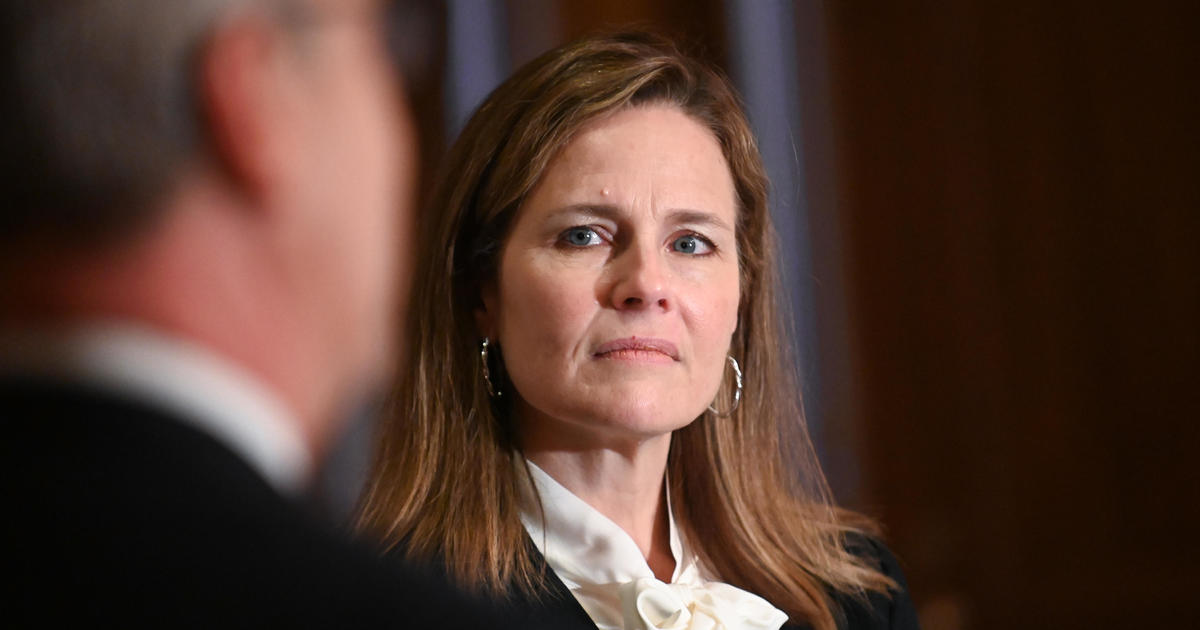U.S. Supreme Court nominee Amy Coney Barrett graduated in 1994 with honors from Rhodes College in Memphis, Tennessee. But more than 1,500 alumni of the small liberal arts school have made it known they are not proud of their ties to the conservative lawyer and judge.
Barrett graduated magna cum laude with an undergraduate degree in English. She was a member of the Honor Council and named the Student Hall of Fame. After her next stop at Notre Dame’s law school, Barrett built a career of “professional distinction and achievement,” said Rhodes president Marjorie Hass, in a statement issued after President Donald Trump nominated Barrett to replace the late Justice Ruth Bader Ginsburg.
The statement was dated September 22. Soon after, Rhodes alumni Rob Marus and Katherine Morgan Breslin wrote a letter criticizing Barrett’s stances on abortion law, the LBGTQ community and the Affordable Care Act. Signed by 1,513 alumni and posted online, the letter says the alumni are “firmly and passionately opposed to her nomination,” declaring Barrett fails to represent their views and values.
“We are likewise firmly and passionately opposed to Rhodes administrators’ attempts to embrace Amy Coney Barrett as an alumna of our beloved alma mater,” the letter said. “We oppose this embrace because we believe both her record and the process that has produced her nomination are diametrically opposed to the values of truth, loyalty, and service that we learned at Rhodes.”
Barrett’s nomination to replace Ginsburg, an abortion rights supporter and liberal icon who died last month, swiftly elicited praise from Republicans and conservatives, and dismay from liberals and Democrats. Opposing sides rained down statements for or against appointing Barrett, currently a Chicago-based federal appeals court judge.
Before Barrett’s time, the school with the stately campus and a total enrollment of about 2,000 students already had a Supreme Court connection. Abe Fortas, class of 1930, became a justice, and Rhodes graduates have clerked for justices and serve as federal judges, Hass said. Rhodes also has hosted on-campus talks by sitting Justice Stephen Breyer and the late Justice Antonin Scalia.
“Judge Coney Barrett participates in this tradition of academic excellence,” Hass’ statement said.
Barrett’s abortion views are a particular point of contention. Barrett voted at least twice on abortion issues as an appellate judge, both times joining dissenting opinions to decisions that favored abortion rights.
The Rhodes alumni letter was signed by students who graduated as far back as 1959, and some who knew Barrett and were in her graduating class. It expresses concerns that she might vote to overturn or “seriously curtail” Roe v. Wade, the landmark 1973 Supreme Court ruling that declared abortion a constitutional right.
The letter accuses her of sidestepping questions about how she would rule if the abortion case were challenged before the Supreme Court. And it claims she has deflected questions about her stance toward the LGBTQ community and her alleged association with an anti-LBGTQ group.
“Amy Coney Barrett has repeatedly shaded the truth about her own views and past associations,” the letter said. It added that Barrett “has demonstrated a judicial philosophy and record that fails to serve and protect the vulnerable in our society, including immigrants, those in the criminal justice system, and individuals reliant on the Affordable Care Act.”
In a subsequent statement following the alumni’s letter, Hass encouraged “all members of the Rhodes community to rise to this moment with courage and to speak, act, and vote in the service of justice.”
“I hope that your letter – as well as the support, dissent, and attention it has generated – serves as a spur for robust engagement with the political process,” Hass wrote. She stood by her previous letter and public remarks praising Barrett’s “exceptional record of academic achievement” at Rhodes.
“The college will continue to speak of her with respect and friendship,” Hass wrote. Later, she added, she was “happy to re-affirm my own commitment and the commitment of the college to stand against bigotry and for the rights of minority and marginalized students and alumni.”
Barrett had no public comments on the letter.
Mr. Trump said during Tuesday’s debate with Democratic challenger Joe Biden that he doesn’t know Barrett’s views on Roe v. Wade and didn’t discuss them with her when they met at the White House three days after Ginsburg’s death.
Marus, co-author of the alumni letter, told The Associated Press the letter’s signees were upset and concerned the college’s reputation could be diminished in the eyes of potential and current students who disagree with Barrett and Mr. Trump. He called her views “antediluvian,” adding some alumni are terrified of any lifetime appointment for Barrett to the court.
“We thought it was time to speak out,” said Marus. “We never thought we’d change how the Senate voted on her. What we wanted to affect was public perception of Rhodes, the education we received there.”
